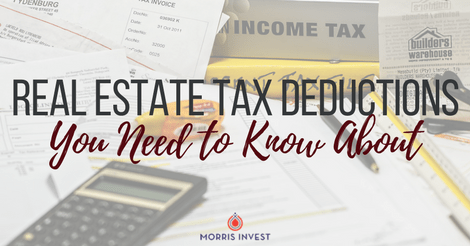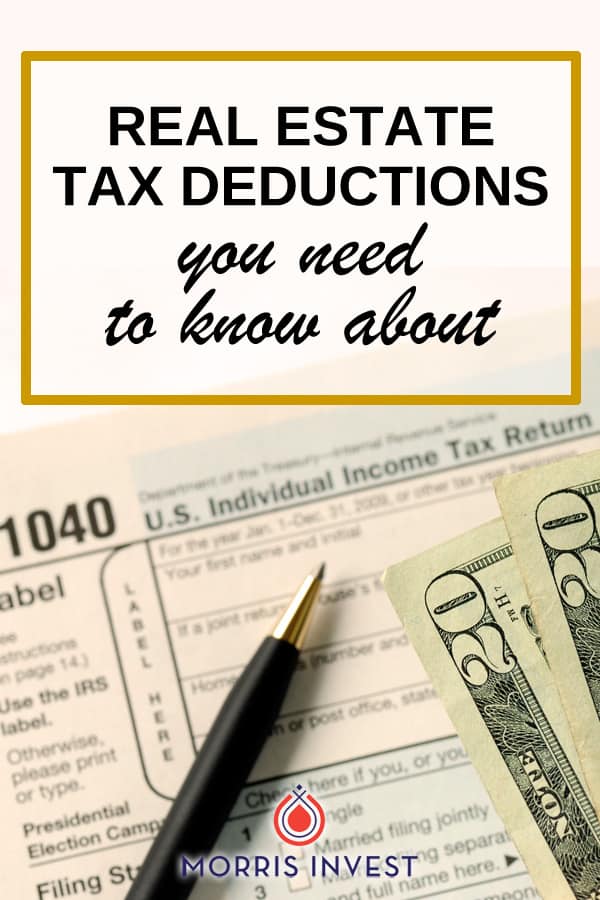
My favorite tax accountant Tom Wheelwright likes to say, “if you’re a real estate investor and you’re paying taxes, then you’re doing it wrong.” One of the top benefits of real estate investing is the enormous overall implication on your tax burden.
Through my experience investing in real estate (and working with a great tax team), I’ve learned these powerful deductions that can alleviate your overall tax burden:
-
Depreciation – The current tax code allows an investor to claim depreciation on each property for 27.5 years in order to account for wear and tear. Claiming depreciation is a powerful tool for mitigating your overall tax burden.
-
Travel – Whether you invest in your backyard or out of state, travel expenses count as business expenses. Keeping track of mileage, car rentals, airfare, and hotel stays is a way to qualify your business expenses are eligible write offs. Even meeting with your accountant or attorney can be a deduction.
-
Vehicle – If you use your vehicle for business purposes, you can write off a percentage of your vehicle purchase. Tracking mileage and gas is also a way to turn your daily driver into a legitimate tax deduction.
-
Meals and entertainment – When you have meals that qualify as business meetings, you can count them as a business expense. Natali and I have lunch dates with an agenda where we speak solely about our real estate business.
-
Education – Enrolling in courses or classes to broaden your real estate knowledge counts as a business expense! Even services like Lynda or a subscription to the Wall Street Journal are educational expenses that qualify as business expenses, and are therefore deductions.
-
Pay children – Since our real estate venture is a legal business entity, we are able to give our children jobs and pay them accordingly. They work for our business by doing small administrative tasks. For example, every Saturday, it is their duty to shed documents, put stamps on envelopes, and deliver outgoing mail to the post office. Similar to any other employee, this counts as a tax deduction.
-
Home office – If you have an office in your home used solely for business purposes, you can claim part of your home as a business expense. There are strict stipulations surrounding this one—your office must have a door, and it must be exclusively an office. A guest bedroom/office or home gym/office does not qualify.
-
Management fee – If you’re working with a property management team, their monthly fee is a legitimate business expense.
We aren’t CPAs, so please consult your own tax advisor. However, as you grow your portfolio, it’s incredibly important that you work with an accountant who understands real estate. Hear Tom Wheelwright’s tips for hiring the right accountant on Investing in Real Estate!

Ready To Build Passive Income Through Rental Real Estate?
Ready to talk about your goals? We're here to show you the tools and teach you the process to begin earning legacy wealth for you and your family.








